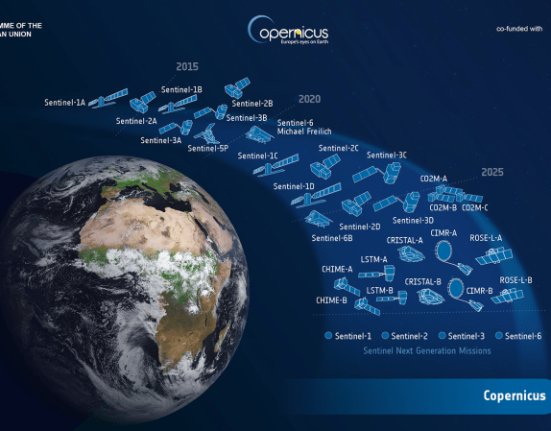TAMPA, Fla. — British financial adviser Citicourt & Co is seeking to raise 100 million pounds ($129 million) in its first venture capital fund to invest in sustainability-focused space opportunities.
“It's been an interesting journey over the last few years helping to fund space companies in the UK and Europe,” said Citicourt founder and CEO Jodi Bartin. Space News.
“It's time for us to take action,” he added, “and try to help bridge the gap between private and public funding.”
According to Bartin, who founded Citicourt in 1991, companies he has advised include B2 Space, a British small launch vehicle startup that is developing a balloon launch system, and Scottish spaceport developer SaxaVord.
Citicourt has also worked with more mature space companies that Bartin declined to name due to confidentiality agreements.
“We're finding that there are a lot of private equity and venture capital funds willing to get involved in the space industry and make one or two investments based on Citicourt's recommendations,” he said.
“There are still a few dedicated space funds around the world.”

As part of those plans, the company recently hired Stuart Martin, who stepped down last year as CEO of Satellite Applications Catapult after leading the British government-backed nonprofit for a decade.
Martin worked with around 700 space-related companies during his time at Catapult, helping to raise around $1.7 billion in investment as part of the UK's efforts to expand the industry.
“When I started Catapult in 2013, there was almost no venture capital in the space, and particularly in the UK,” Martin said, “and because of that there was no startup community in the space.”
Catapult set out to catalyze venture capital interest in forming seed funds for the space, crystallizing a startup community that it said is now thriving in the country.
Citicourt aims to support the next generation of companies that are ready for a late Series A or early Series B institutional funding round to scale their businesses.
According to Martin, there are numerous deep tech funds worth hundreds of millions of dollars that “very often want to have a small amount of investments in the space, but they don’t have the expertise to comfortably invest capital in an area that they simply don’t understand.”
Citicourt plans to close its venture capital fund this year, which would allow the firm to take the lead on 10 to 12 space-related investments.
Hungry for launch
“One thing I’ve noticed at Citicourt, literally in the last month or six weeks, is that there’s a lot more interest in the launch now in the investment community,” Martin said.
“It was a sector that investors stayed away from, but now at Citicourt we are starting to see the best of the best rise to the top of the hundreds of companies that originally started with a little seed capital and R&D grants.
“We’re starting to see that small number of people who are getting close to a first launch and really showing some operational credibility.”
He said SpaceX's recent failure underscored how vulnerable the space industry is because of its heavy reliance on a single launch provider.
While Falcon 9 Returned to flight over the weekend After being on the ground for just 15 days, the ripple effects of the rocket's failure delayed launches for commercial and government customers.
Startups could qualify under a scoring system that Citicourt plans to use to invest in ventures deemed to have a clear path to positively impacting the Earth, such as sustainable food production, deforestation and carbon mitigation.
Sustainability initiatives are also a priority for UK-based Seraphim and its publicly traded space investment trust.
Still, early-stage space companies continue to struggle with Lack of funding for the growth phase in Europewhich has long lagged behind the United States.
“The opportunity is there and it is not currently being taken advantage of,” Martin said.
“I think it's an opportunity for investors and a headwind for the UK space sector at the moment. We couldn't have launched our sustainability-focused Citicourt space fund earlier – Seraphim can't do it all.”
Bartin added that early-stage space companies are also increasingly able to access substantial debt financing, in addition to equity, to develop their businesses.
“It's not just about, 'I need $5 million in my bank account now to fund my business plan for the next 10 years,'” he said.
“That’s not how it works. The investors we spoke to at Citicourt will be looking to provide funding for a maximum of 12 to 18 months, and companies will be better prepared to take advantage of that and raise funds in later rounds at increasing valuations.”













Leave feedback about this